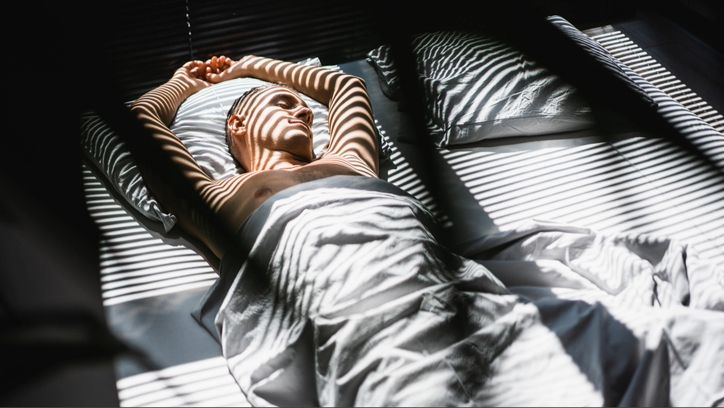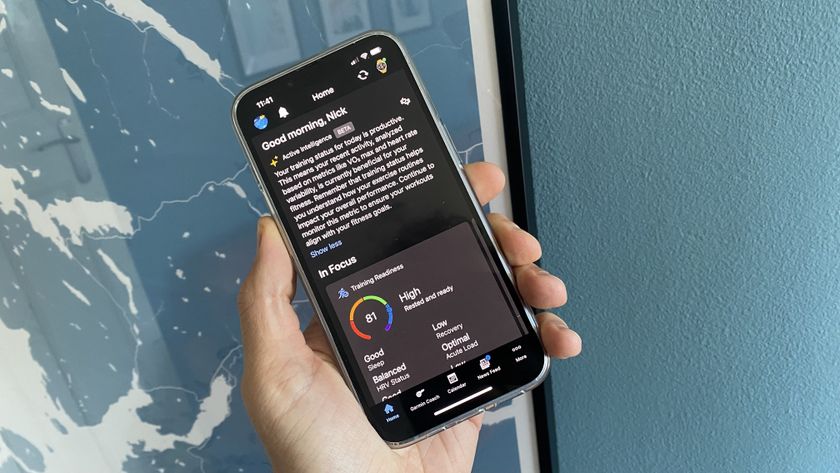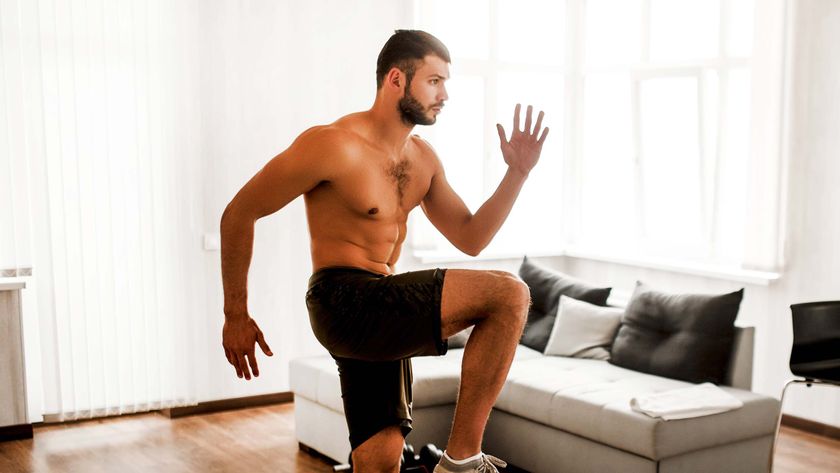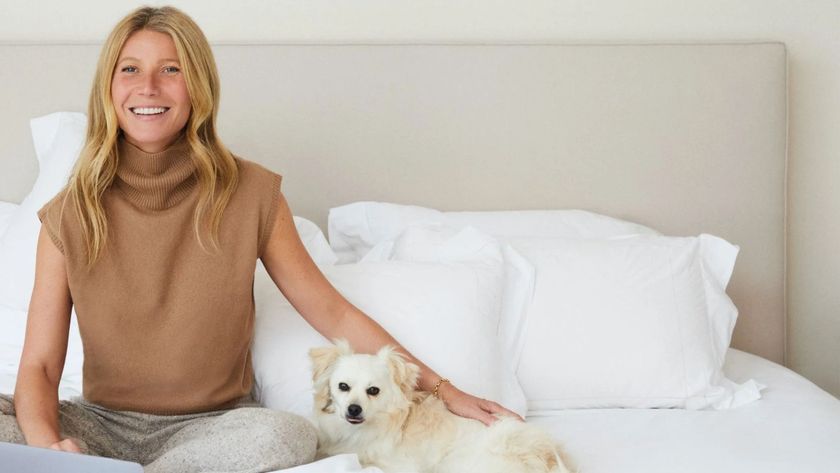7 reasons you keep waking up at night — and how to start sleeping through instead
Wide awake again at 3am? An expert reveals why you keep waking up at night and how to stop
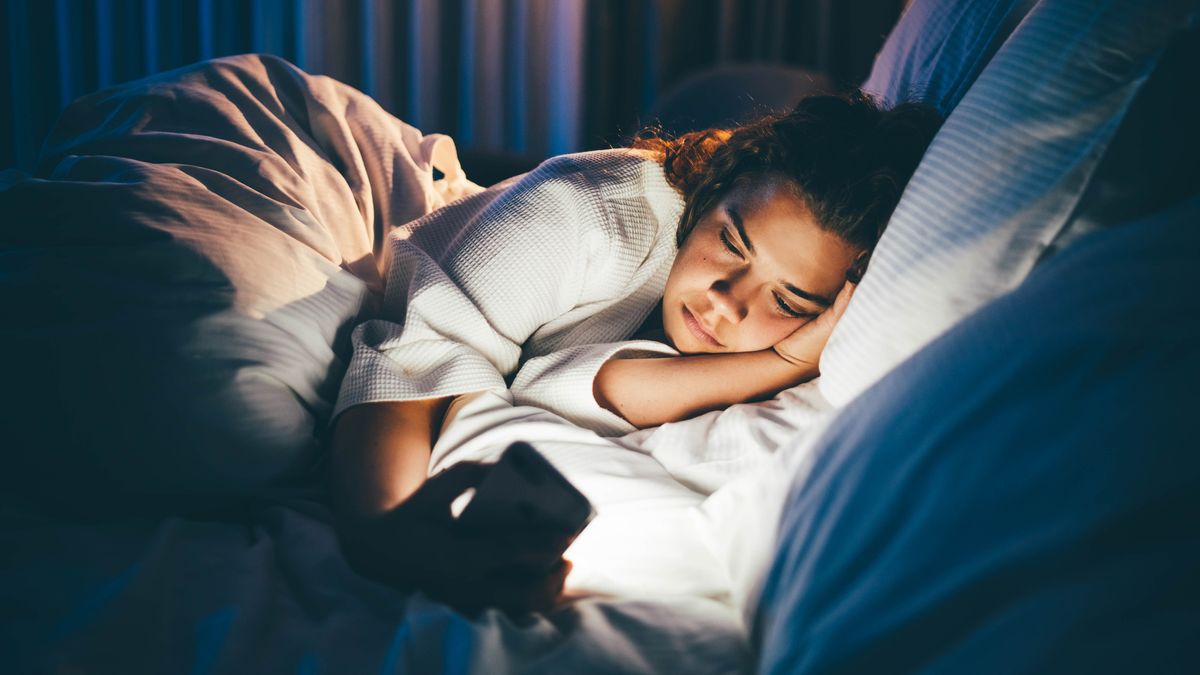
Many of us can fall asleep easily but suddenly find ourselves waking up at night. If you’re one of the 35% of people who wake in the night at least three times a week, several factors could be causing it.
“Waking up briefly during the night is a normal,” explains Maryanne Taylor, sleep consultant and founder of The Sleep Works. “When we transition through sleep cycles, we have a partial awakening, although we may not remember it. If, however, we often find ourselves fully awake, this can then cause us to stay awake for some time, leaving us feeling exhausted by the morning.”
Night waking’s a problem when it starts to interfere with overall sleep quality and daytime functioning. “If you consistently wake up for more than 30 minutes during the night, it may be indicative of a larger sleep issue so it’s important to address any underlying factors contributing to the problem,” explains Maryanne.
Here the sleep expert explains the common reasons behind why you keep waking up at night, how to stop it, and how to start sleeping through instead. If you feel your bed is one of the culprits behind your frequent night wakings, then consider investing in the best mattress for your sleep style and body too – the more comfortable you are at night, the sounder you'll sleep.
And if the issues below don't target why you're having trouble sleeping, it might be a lifestyle change is needed to help you sleep through the night. Check out our guide 5 reasons why you keep waking up and how to sleep through the night for more advice.
7 reasons why you keep waking up at night
1. You're eating too close to bedtime
Consuming large or heavy meals close to bedtime can increase metabolic activity making it more difficult to stay asleep all night. “The body requires energy to digest food, and if digestion is still active when we go to bed, it can interfere with the body's ability to relax and transition into restorative rest,“ explains Maryanne.
“Certain types of foods, particularly those high in sugar or fat, can stimulate the nervous system, cause discomfort or indigestion, making it difficult to fall or stay asleep.”
Sign up to get the BEST of Tom's Guide direct to your inbox.
Get instant access to breaking news, the hottest reviews, great deals and helpful tips.
Eating late at night can also increase the likelihood of experiencing acid reflux or heartburn, especially if you lie down in bed shortly after eating. Heartburn can cause discomfort and disrupt sleep patterns, leading to frequent awakenings during the night.
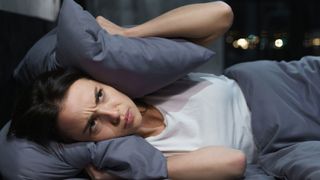
2. Loud noises – inside and outside your home
Loud noises, whether from the street outside or an early-hours text message can startle us from deep stages of sleep, leading to fragmented sleep patterns and a decrease in overall sleep quality.
“If you’re often woken up by noise and struggle to get back to sleep afterwards, consider using a white noise machine or earplugs to mask external sounds. Additionally, some heavy curtains can be helpful to block out noise from outside, creating a quieter sleep environment,” offers Maryanne.
The mid-range frequencies of green noise for sleep can help if you're struggling to drift off, but for regular nighttime awakenings, the 'privacy screen' of white noise is better at helping you stay asleep.
3. Frequent peeing at night
Waking to use the bathroom can interrupt our natural sleep cycles, preventing us from reaching deeper stages of sleep. “Excess fluid intake in the evening, especially caffeinated and alcoholic drinks which can act as diuretics, increase the need to urinate,” explains Maryanne.
“So can eating water-based foods such as large salads and some fruit like watermelon – hidden water consumption can put extra pressure on the bladder and contribute to night awakenings. Also, not emptying your bladder fully before bed can increase the likelihood of waking up.”
4. Your hormones are to blame
As we age, sleep tends to become more fragmented throughout the night. In women, night-waking becomes more common during perimenopause and is caused by fluctuating oestrogen.
“Hormonal shifts can cause various symptoms that can contribute to sleep disturbances, such as hot flushes, night sweats, anxiety and racing thoughts, which can make it harder to go back to sleep if you do wake,” says Maryanne.
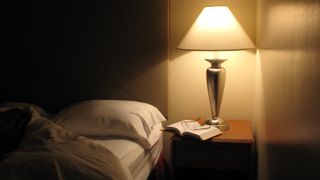
5. Your bedroom is too light
Ideally, bedrooms should be as dark as possible to promote the production of melatonin, the sleep hormone, to help us get to sleep and stay asleep. This is also important when dawn breaks and natural light begins to filter in during the early hours of the morning - the darker the room, the less disruption to our sleep cycles.
6. You're drinking alcohol in the evenings
Alcohol suppresses the rapid eye movement (REM) stage of sleep, which is crucial for cognitive function and memory. “Even if you drop off quickly after drinking, you're more likely to wake during the night, possibly struggle to get back to sleep, and feel groggy,” says Maryanne.
In terms of the amount of alcohol that can affect sleep, whilst the exact threshold varies from person to person, even one drink can impact sleep quality, particularly if consumed close to bedtime.
7. You're stressed out
Anxiety and stress activate the body's ‘fight or flight’ response, triggering the release of stress hormones cortisol and adrenaline. These physiological responses can increase alertness and arousal levels, causing your mind to race when you go to bed, making it difficult to stay asleep.
“Even if you manage to drift off initially, heightened anxiety levels can cause you to wake up and struggle to return to sleep,” says Maryanne. “Anxious or stressed people often experience racing thoughts and rumination. Persistent worries, concerns, or intrusive thoughts can make challenging to dial down mental chatter and relax.”
It also works the other way; a 2024 study found that poor sleep makes it harder to stop intrusive thoughts.
How to stop waking up at night
Now you know what could be causing your night-waking, here’s Maryanne’s advice to help it stop:
1. Invest in blackout blinds
Consider blackout curtains or an eye mask to block external light sources. Blue light from phones or screens can impact the natural production of sleep-hormone melatonin and increase cortisol, which can impact our sleep, so limit screen time before bed.
2. Wear earplugs or use white noise
Try earplugs or a white noise machine to help minimise disturbances from external noise. Thick curtains or double-glazed windows can also help to prevent noise from the street outside waking you up. If you sleep better with some noise, try using white noise – this can also mask other noise pollution.

3. Manage your stress
Managing stress and staying physically active can support restful sleep during transitional life stages such as perimenopause or menopause. If you suspect hormonal activity might be causing you to regularly wake up, it could be worth seeking medical advice too.
4. Limit diuretics and avoid alcohol at night
Avoid diuretic drinks – coffee, tea and alcohol leading up to bedtime and minimise evening intake of water-based foods such as salads or fruit like watermelon to help prevent your bladder waking you up. Also try to avoid drinking alcohol close to bedtime, especially if you're prone to sleep disturbances. Switch to non-alcoholic drinks in the hours leading up to sleep instead.
5. Eat the best foods for sleep
Avoid heavy or large meals within a few hours of bedtime. Instead, opt for lighter, easily digestible snacks. Foods that contain tryptophan, such as bananas, nuts, or dairy products, may promote relaxation to help prepare the body for sleep.
6. Write down worries before bed
Starting a worry journal can help you process anxious thoughts before sleep. Jot down any concerns, fears and to-do lists before you bedtime, allowing you to externalise worries and mentally prepare for restorative sleep. Some psychologist suggest setting aside some worry time every day and doing it outside of the bedroom so that you don't associate your bed as a place where you actively worry.

Bethan is a freelance journalist, brand consultant and copywriter, specialising in beauty, fashion, wellbeing, and health. She has over 17 years' experience working across print and digital platforms on national weekly, monthly and bi-monthly magazines, including Stylist online, Refinery29, Elle Australia, Grazia Australia, OK!, The Sunday Mirror, The Metro, Stella and Telegraph online, and more. Bethan has a keen interest in sleep and, crucially, how she somehow can get more of it.
-
madmaz Reply
No I don't recommend porn before sleeping. It ramps up your active brain and highly charged images of fornication do not carry well into Dreamland.John_U said:Having an orgasm is probably the best way to get to sleep or go back to sleep in the middle of the night. It is completely natural, has no bad side effects like the oft prescribed sleeping "aids", and it costs nothing. It is beyond disgusting that the medical profession refuses to mention masturbation or solo sex as an important way to get to sleep. If you think that is something everyone should "just know", keep in mind that in our sex negative society, sex in general, and masturbation in particular, are considered immoral by at least half the US population. So it is incumbent on the medical profession to give people permission to have an orgasm to help them get to sleep. And, if it helps, watch a little porn to get in the mood. That's harmless, too.
I should also mention that there is research indicating that it is normal for at least some people to wake up for an hour or so in the middle of the night, do something, and go back to sleep. See for example:
"At Day's Close: A History of Nighttime" by A Roger Ekirch http://www.guardian.co.uk/books/2005/jul/30/featuresreviews.guardianreview8
Better do some light stretching , Google that, so many options to wind down to sleep. -
madmaz Reply
No I'm referring to my own experience with porn images and masturbation as a remedy to easily fall asleep. The mental imagery excites me too much and the effort expended actually ramps my energy up instead of settling it.John_U said:My personal experience is that sexual images I watch just before masturbation and then sleep don't "carry into dreamland" at all. Do you know of any peer reviewed studies that show that they do? I'm not impressed with the "just take a cold shower" advice from our collective sex negative culture. I'm impressed with so much common knowledge that people often sleep soundly right after sexual release. If you know of peer reviewed studies that confirm or reject this idea, I'd like to know about them.
What helps me is some gentle stretching on my bed especially my glutes, hams, lower back while breathing deeply. 10 minutes of this helps me relax more than masturbation. It's a personal preference. Hardly imagine any medical practitioner would study this vs. masturbation to relax at bedtime.

